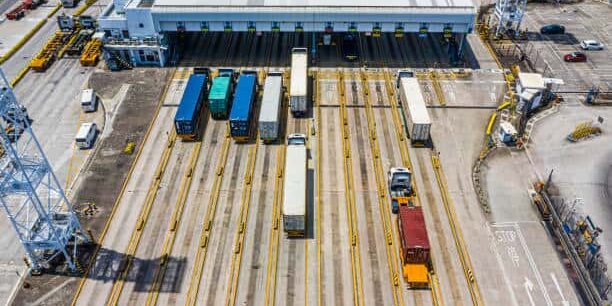A new 2,600 km multimodal corridor has been launched, connecting the Belgian port city of Antwerp with Istanbul, Turkey. This innovative service is designed to significantly enhance logistics and supply chain efficiency across various industries, particularly the automotive sector.By combining road and rail transport, the new route reduces transit time from ten days to eight, compared to using only road transport. This advancement enables companies to move larger volumes of products between these key trade hubs more efficiently and reliably.
The new link offers a more regular service throughout the year, even during peak seasons, while also reducing road congestion. Additionally, there is an option to combine short-sea shipping and rail, with rail transit between Duisburg, Germany, and the port at Trieste, Italy, connecting to sea transit between Trieste and Izmir, Turkey. This multimodal service supports just-in-time schedules crucial for the automotive industry.
“The automotive industry, with its complex supply chains and time-sensitive shipments, can benefit significantly from this new multimodal transport offering,” said a spokesperson. “OEMs and suppliers shipping inbound parts can leverage this service to optimize their supply chain, potentially reducing transit times and improving reliability in their just-in-time manufacturing processes.”
The service also offers advantages for aftermarket parts distributors, providing flexibility and efficiency to maintain competitive lead times and better manage inventory. This multimodal solution is particularly well-suited for automotive companies, allowing adaptation to varying shipment sizes and frequencies while ensuring consistent transit times to support production planning.
Sustainable Service
The new service also emphasizes environmental benefits compared to exclusive road haulage. Rail transport produces approximately 80% fewer emissions than traditional road transport, resulting in roughly 3,100 kg less CO2 emitted per trip. It is also more cost-effective, with the potential to reduce overall logistics costs through optimized routing.
Automotive companies looking to decarbonize their supply chains are keen to achieve these CO2 emission savings. “Our commitment to multimodal transport solutions has strengthened our position in the combined road, sea, and rail transportation market,” said a managing director for Central Europe. “Implementing multimodal solutions is a crucial step in enhancing the efficiency of our customers’ goods movement while reducing their supply chain carbon footprint to meet sustainability objectives. The new corridor between Belgium and Turkey will bring environmental efficiencies, enhanced safety, and reduced transit times.”
The suite of low-emission sustainable solutions (Less) is part of the effort to help customers reduce carbon in the supply chain and meet sustainability targets. Along with providing alternative modes to road transport, Less includes options for curbing CO2 emissions by using alternative fuels such as hydrotreated vegetable oil, natural gas, and electricity. “With transport responsible for almost 37% of global carbon emissions and heavy trucks alone accounting for approximately 25% of transport emissions, it is vital to improve opportunities to reduce emissions through innovative solutions like Less.”
The latest service builds on existing rail and road services, including routes between Barcelona, Spain, and Bettembourg, Luxembourg; Le Boulou and Calais, France; and Domodossola, Italy, and Duisburg, Germany. Additionally, short sea shipping routes operate between the ports of Liverpool, UK; Santander, Spain; Barcelona, Spain; and Savona, Italy.
#ICTTMNews #BreakingNews #SupplyChainUpdate #LogisticsNews #GlobalTrade #SustainableTransport #MarketUpdate







